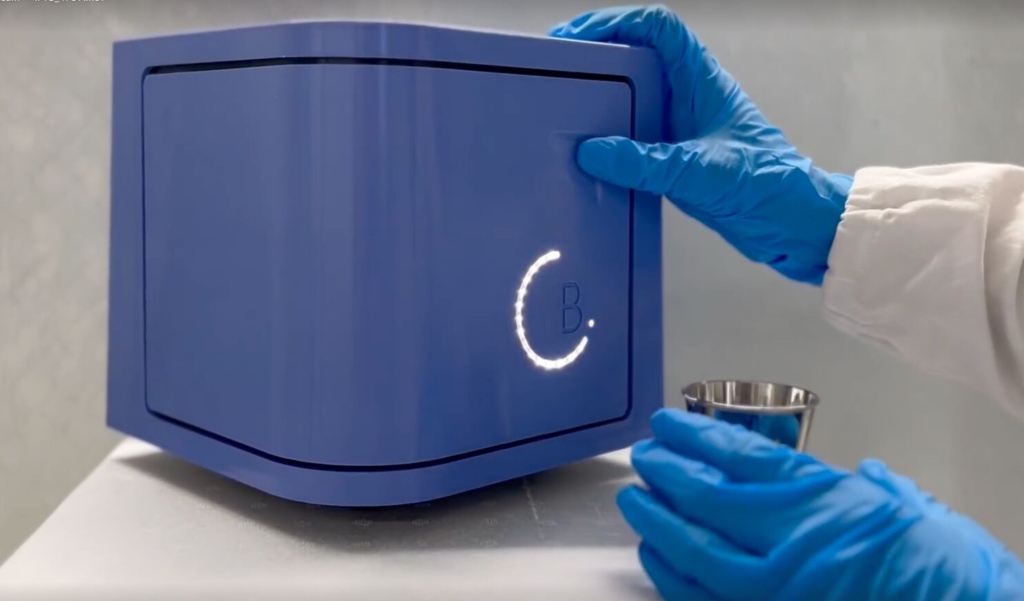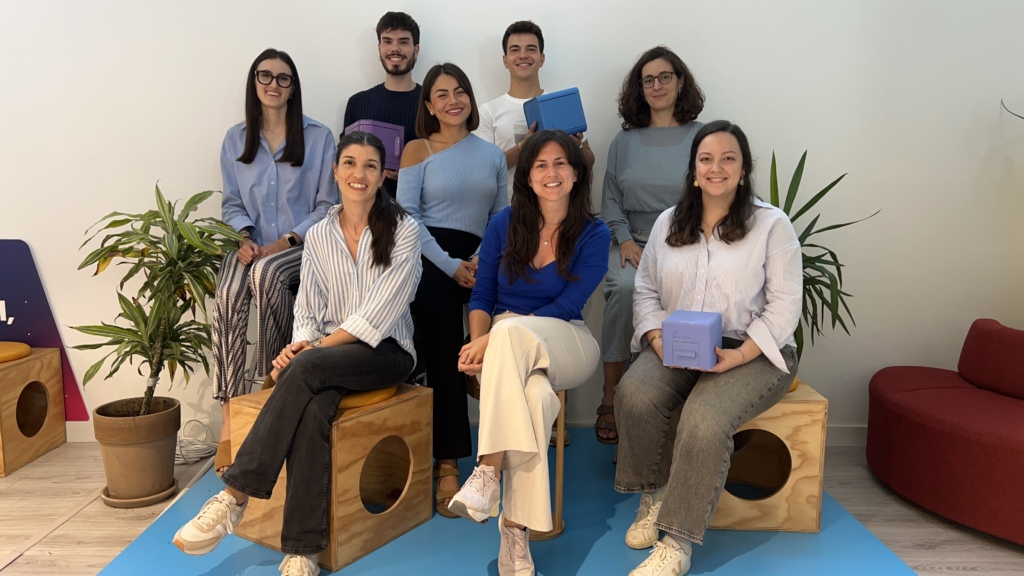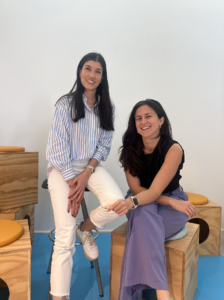
The Blue Box has secured €3 million in seed funding to advance its artificial intelligence-powered breast cancer screening technology through clinical trials, addressing critical gaps in current detection methods that miss one in three cases.
The Barcelona-based medtech company has developed a urine-based screening test that analyzes volatile organic compounds using proprietary AI algorithms, achieving 88% sensitivity in detecting breast cancer biomarkers – a significant improvement over mammography’s performance, particularly for women with dense breast tissue.
The seed round was led by Unconventional Ventures, a Nordic-based impact fund focused on backing diverse founders and inclusive innovation, and joined by Fund F, Grow Ventures, Hans(wo)man Group and Krups Family Office. The Spanish Association Against Cancer also participated, serving as validation of both the science behind the technology and the scale of the unmet need being addressed. The round also includes several experienced entrepreneurs who have long been mentors to the company and are now investing for the third time – among them Robert Masse and femtech investor Torsten Kolind, the latter of whom continues to serve on the company’s Board of Directors. Other participating business angels include Matt Cooper.
Company Origins
The Blue Box originally emerged from biomedical engineering research at the University of Barcelona, where co-founder Judit Giró first encountered the clinical frustrations driving her current work. As part of her coursework, students visited hospitals to identify problems requiring engineering solutions.
“One of the biggest issues I could see was how frustrated gynecologists were about cancer detection,” Giró recalls. “There were so many women, even young women, with tumors that could have been treated, but it was too late by that time.”
The breakthrough came then from an unexpected source: Research showing that dogs could detect cancer by smell with 90% accuracy. This led Giró to develop her bachelor thesis around creating an “electronic nose” that could replicate canine detection capabilities.
She later met co-founder and COO Lidia Navarro during a fellowship at the University of California. Navarro brought experience leading European-funded research consortia and a specific frustration with the gap between academic research and market implementation.
“Lidia was very frustrated as a scientist that the transition from paper to market rarely happens,” Giró explains. “She was passionate about finding a solution and accelerating it to market.”
The partnership has operated for five years, working with seven hospitals throughout development to validate the technology and build clinical relationships essential for regulatory approval.

The Clinical Problem
Current breast cancer screening faces a fundamental efficiency problem. National screening programs miss approximately one-third of breast cancer cases while generating overwhelming false positive rates that strain healthcare resources.
“For every three women with breast cancer in screening programs, one will not be detected and sent home with cancer, and two will be recalled for further testing,” explains Giró. “However, of all women recalled for additional testing, only 1% actually have cancer. So we’re using expensive resources on healthy women while missing cases that need treatment.”
The problem is particularly acute for women with dense breast tissue, who comprise 50% of the screening population but experience reduced mammography accuracy.
Technology and Market Strategy
The Blue Box leverages proprietary electronic nose technology to detect metabolic changes that breast cancer produces in urine. The company’s chemical sensor system captures volatile organic compounds and feeds the data into an AI algorithm trained to recognize early cancer signals.
Rather than immediately challenging mammography, the company has structured a two-phase market entry strategy. Initially, The Blue Box will function as a diagnostic aid alongside existing screening methods, serving as a “rule-out” test to identify healthy patients before they consume additional healthcare resources. The company’s technology achieves over 95% negative predictive value, making it highly effective at confirming when patients do not have cancer.
“Our end goal is to become the future gold standard for breast cancer screening,” Giró states. “However, we’re entering first as an aid to diagnosis, allowing clinicians to adapt to the technology while we generate clinical data and build trust before pursuing standalone screening approval.”
The second phase will target regulatory approval as a primary screening method, positioned as the first line of detection before imaging techniques.

Clinical Development Timeline
The fresh capital will fund clinical trials across seven European hospitals, with studies launching in the first half of 2026 and CE marking targeted for year-end. The company is currently finalizing its fifth iteration of the device – the commercial version intended for regulatory submission.
The Blue Box has maintained capital efficiency throughout development, reaching clinical-ready stage with approximately €1.5 million in non-dilutive public funding from European and Spanish sources, plus earlier angel rounds from the same investor group.
The technology builds on established research in volatile organic compound detection rather than attempting fundamental scientific breakthroughs. “We didn’t discover these biomarkers or invent electronic nose concepts,” Giró notes. “We’re introducing proven science into the medical field and optimizing it for clinical application.”
Investor Validation
The funding round attracted both impact-focused institutional investors and experienced healthcare entrepreneurs. Thea Messel, General Partner at lead investor Unconventional Ventures, cited the technology’s potential to address mammography limitations for women with dense breast tissue: “This groundbreaking technology fills a critical void in the market, offering a non-invasive, accurate alternative to traditional mammography,” Messel said. “The Blue Box simplifies cancer detection to the ease of a pregnancy test using urine samples, with potential to significantly reduce mortality rates through earlier treatment.”
The Spanish Association Against Cancer’s participation provides clinical validation. “The Blue Box represents innovation focused on new patient needs that will have significant impact on improving breast cancer diagnosis, especially for young women where we’ve identified an unmet need,” said Dr. Marta Puyol, the organization’s scientific director.
Expansion Pipeline
While breast cancer remains the primary focus, the platform’s underlying technology can be adapted for additional cancer types using the same hardware with different AI training protocols. The company has identified ovarian and endometrial cancers as near-term expansion opportunities.
The device will be deployed in clinical settings rather than as an at-home test, positioning it within existing gynecological care workflows for women in national screening age ranges. With clinical trials set to begin across seven European hospitals, The Blue Box is positioned to demonstrate whether its AI-enhanced biomarker detection can address the efficiency gaps that have long plagued breast cancer screening systems.



